Updated on Feb, 26 2025 09:09 IST
 Study medicine in Russia with the finest faculty and experiences. Russia is known to be one of the best providers of Medical Education in the world. Thousands of Medical students worldwide wish to continue their careers by studying in Russia. International students worldwide visit Russian universities each admission year as it is a popular destination to study abroad, and it also provides medical degrees at a very low cost, making it affordable for students. The medicine course in Russia is very effective and attracts foreign nationals each year for the infrastructure in Russia for the medicine courses. The medical programs will be in the English language, and an increasing number of international students are studying medicine courses in Russia. Under the supervision of the Ministry of Public Health of the Russian Federation, Russia offers medical degrees and globally recognized institutions by UNESCO and WHO. Russia is the best country for your medical career as they offer a lot of specialization in medicine courses, and completing a medical degree from Russia will be a very good choice for students.
Study medicine in Russia with the finest faculty and experiences. Russia is known to be one of the best providers of Medical Education in the world. Thousands of Medical students worldwide wish to continue their careers by studying in Russia. International students worldwide visit Russian universities each admission year as it is a popular destination to study abroad, and it also provides medical degrees at a very low cost, making it affordable for students. The medicine course in Russia is very effective and attracts foreign nationals each year for the infrastructure in Russia for the medicine courses. The medical programs will be in the English language, and an increasing number of international students are studying medicine courses in Russia. Under the supervision of the Ministry of Public Health of the Russian Federation, Russia offers medical degrees and globally recognized institutions by UNESCO and WHO. Russia is the best country for your medical career as they offer a lot of specialization in medicine courses, and completing a medical degree from Russia will be a very good choice for students.
Russian universities have grown to become the top study destination for a lot of students. The country offers a lot of services, especially for international students, so the things that you should know before applying are:
Cost: The cost to study at the Russian University is very low as the tuition fees are between 2800 USD and 4300 USD. The living expenses in Russia are also very affordable, making it effective for the students to study at the Russian Universities.
Application: The application process is considered the most difficult part of studying in Russia as there are many choices for you to select the medical university in Russia. You need to remember the eligibility requirements that the universities will have, which will allow you to apply for the course at a certain University.
English Proficiency: Most of the medicine courses in Russia generally happen in the English language, and the students are expected to understand the English language in a better way. It is very effective for the students to prove their proficiency in the English language before applying for the medicine course in Russia.
International Experience: The students selecting to study the Medical program from the Russian Universities create an international experience for themselves. You will get an opportunity to learn a new culture, engage yourself with the local people of Russia, and gain international knowledge.
FMGE: According to the data given by the National Board of Examination the past percentage for the FMGE in medicine courses in Russia is 25.5%. Indian students who have graduated from a medical university in Russia need a 16.5% FMGE.
Further Studies: The students also get to take up medicine studies at Russian universities. The students will get the opportunity to take an MBA or a master's degree in medicine for further career experience.
Ranking: The students will have a very high global ranking after completing the medicine program in Russia, and it will benefit them and help them to have more career opportunities.
Jobs: You will get various job opportunities after you complete your medicine course in Russia. The job opportunities you get will be very effective and will help you have high prospects for yourself.
Studying medicine in Russia is a very effective opportunity for students as most international MBBS students complete their higher medical education in Russia. The details of recognition of the Russian Medical University are:
WHO: The World Health Organization recognizes most of Russia's medical universities.
UNESCO: They are a famous international body that recognizes most Russian medical universities.
NMC: The National Medical Commission recognizes most of the universities in Russia that provide medical courses.
Ministry of Education and Sciences: It is an international institution that recognizes most Russian Universities.
The medical degree is one of the best in Russia, and it will benefit you to study the course at Russian universities. The major reasons for you to study the course from the Russian universities include:
Lesser Tuition Fees: The medical courses from Russian Universities are highly affordable as the fees to study from Russian universities are very low. Compared to other famous International universities, Russian universities provide medical courses at a much lower tuition fee.
Great Career Opportunities: After completing the medicine course from Russia, the students are eligible to get many career opportunities not only in Russia but at the global level. WHO, UNESCO and MCI recognize the degree, so getting career opportunities at top medical institutions and hospitals will be possible for the students.
English Language Courses: Most of the medicine courses in Russia happen in the English language, and as the English language is globally accepted, it is for the convenience of international students that Russian universities use the English language for their medical courses. Completing the course in the English language is very beneficial and easy and makes the course a very effective choice for the students.
High-standard of Education: The quality of education provided at the Russian Universities is of the international level. It is known to be the 8th best provider of medicine courses in the world and has a hub of universities that understand that medicine department very well.
Low Cost of Living: The living expenses in Russia will also be very low as it is less expensive to live in Russia. The necessities are cheap, and living and studying in a country like Russia is very affordable.
Russia is Safe: Russia has a perfectly safe environment for the students to study and makes it very easy and comfortable for the students to live. Russia has a violence-free environment which makes it very easy for students to study in Russia.
There are many famous universities in Russia providing medical courses, and these Medical Universities are internationally famous. The details of these universities are:
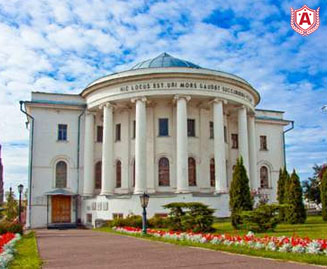
| Year of Establishment | 1930 |
| National Ranking | 1st |
| No. of Indians Students | 4100+ (Existing and Passout Students) |
| FMGE Passing Percentage | 30% |
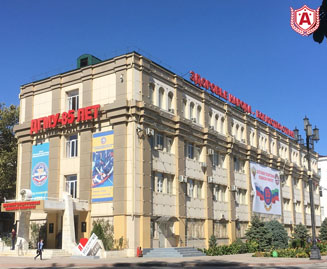
| Year of Establishment | 1932 |
| National Ranking | 4th |
| No. of Indians Students | 3500+ (Existing and Passout Students) |
| FMGE Passing Percentage | 30% |
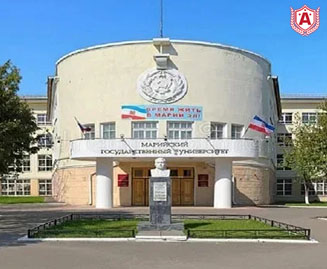
| Year of Establishment | 1972 |
| National Ranking | 5th |
| No. of Indians Students | 3000+ (Existing and Passout Students) |
| FMGE Passing Percentage | 32% |
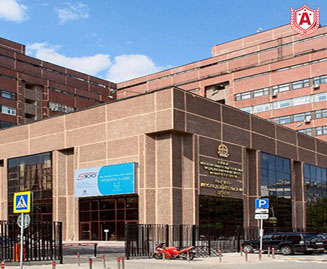
| Year of Establishment | 1758 |
| National Ranking | 6th |
| No. of Indians Students | 2500+ (Existing and Passout Students) |
| FMGE Passing Percentage | 34% |
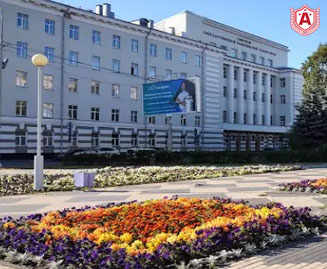
| Year of Establishment | 1932 |
| National Ranking | 7th |
| No. of Indians Students | 2600+ (Existing and Passout Students) |
| FMGE Passing Percentage | 35% |
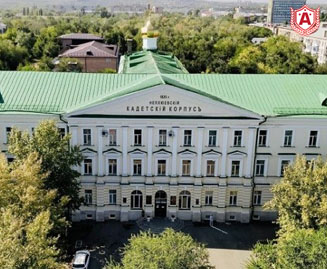
| Year of Establishment | 1944 |
| National Ranking | 8th |
| No. of Indians Students | 2900+ (Existing and Passout Students) |
| FMGE Passing Percentage | 29% |
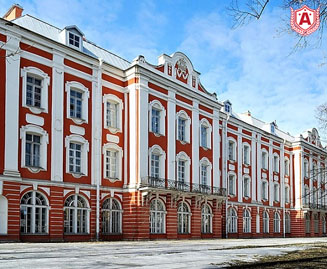
| Year of Establishment | 1897 |
| National Ranking | 9th |
| No. of Indians Students | 3000+ (Existing and Passout Students) |
| FMGE Passing Percentage | 29% |
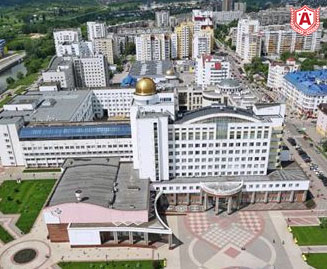
| Year of Establishment | 1876 |
| National Ranking | 10th |
| No. of Indians Students | 3200+ (Existing and Passout Students) |
| FMGE Passing Percentage | 32% |
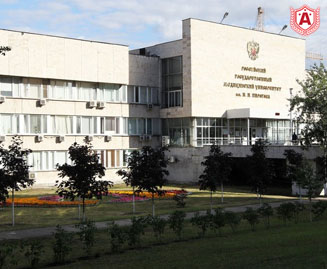
| Year of Establishment | 1906 |
| National Ranking | 11th |
| No. of Indians Students | 3300+ (Existing and Passout Students) |
| FMGE Passing Percentage | 33% |
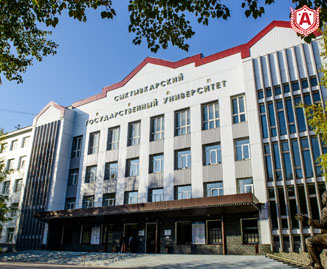
| Year of Establishment | 1972 |
| National Ranking | 12th |
| No. of Indians Students | 3300+ (Existing and Passout Students) |
| FMGE Passing Percentage | 34% |
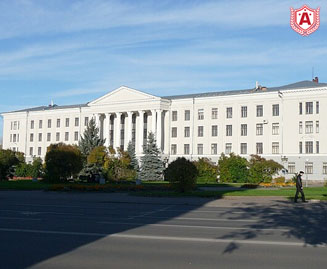
| Year of Establishment | 1936 |
| National Ranking | 13th |
| No. of Indians Students | 3400+ (Existing and Passout Students) |
| FMGE Passing Percentage | 34% |
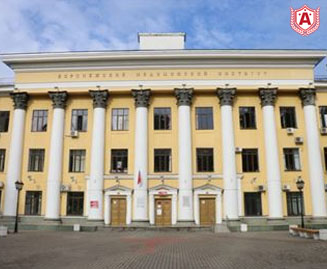
| Year of Establishment | 1930 |
| National Ranking | 14th |
| No. of Indians Students | 3200+ (Existing and Passout Students) |
| FMGE Passing Percentage | 34% |
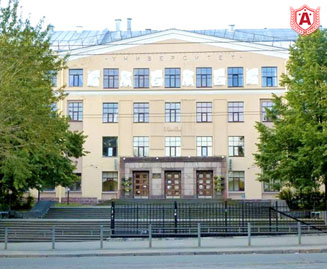
| Year of Establishment | 1940 |
| National Ranking | 15th |
| No. of Indians Students | 3000+ (Existing and Passout Students) |
| FMGE Passing Percentage | 34% |
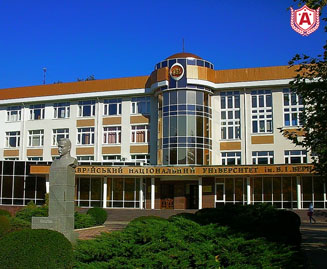
| Year of Establishment | 2014 |
| National Ranking | 16th |
| No. of Indians Students | 3250+ (Existing and Passout Students) |
| FMGE Passing Percentage | 34% |
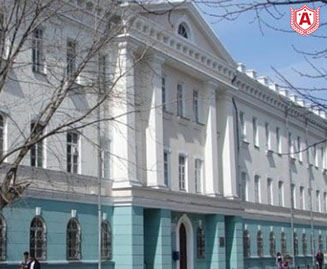
| Year of Establishment | 1930 |
| National Ranking | 17th |
| No. of Indians Students | 2800+ (Existing and Passout Students) |
| FMGE Passing Percentage | 30% |
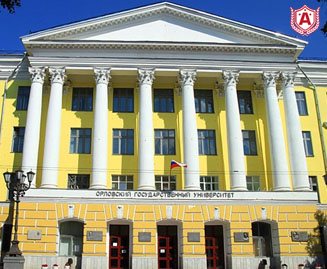
| Year of Establishment | 1931 |
| National Ranking | 18th |
| No. of Indians Students | 2600+ (Existing and Passout Students) |
| FMGE Passing Percentage | 31% |
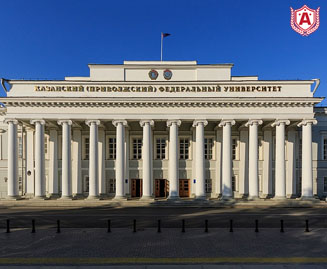
| Year of Establishment | 1804 |
| National Ranking | 19th |
| No. of Indians Students | 2500+ (Existing and Passout Students) |
| FMGE Passing Percentage | 31% |
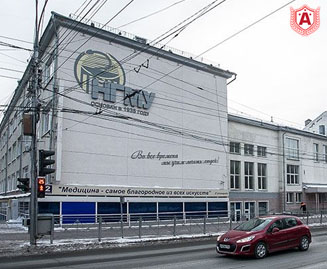
| Year of Establishment | 1935 |
| National Ranking | 20th |
| No. of Indians Students | 3000+ (Existing and Passout Students) |
| FMGE Passing Percentage | 35% |
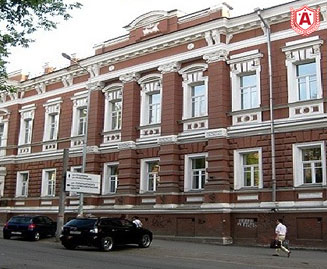
| Year of Establishment | 1916 |
| National Ranking | 21th |
| No. of Indians Students | 3500+ (Existing and Passout Students) |
| FMGE Passing Percentage | 30% |
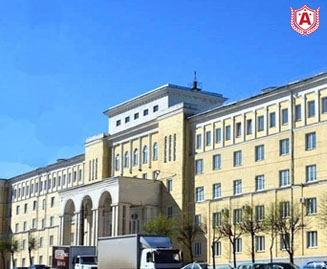
| Year of Establishment | 1920 |
| National Ranking | 22th |
| No. of Indians Students | 2600+ (Existing and Passout Students) |
| FMGE Passing Percentage | 25% |
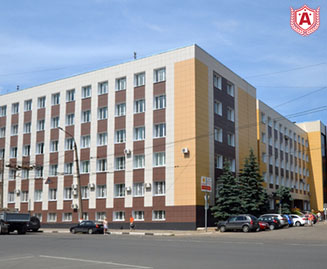
| Year of Establishment | 1954 |
| National Ranking | 23th |
| No. of Indians Students | 2200+ (Existing and Passout Students) |
| FMGE Passing Percentage | 25% |
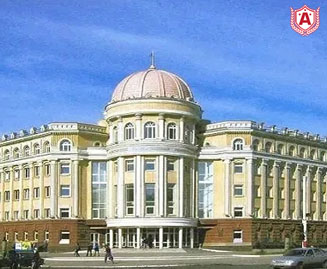
| Year of Establishment | 1909 |
| National Ranking | 24th |
| No. of Indians Students | 2300+ (Existing and Passout Students) |
| FMGE Passing Percentage | 25% |
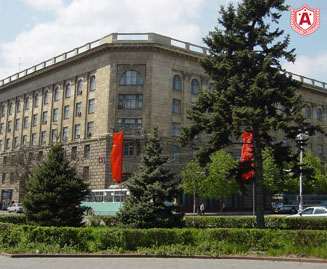
| Year of Establishment | 1935 |
| National Ranking | 25th |
| No. of Indians Students | 2100+ (Existing and Passout Students) |
| FMGE Passing Percentage | 28% |
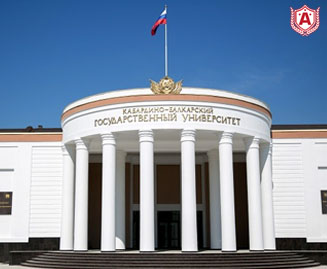
| Year of Establishment | 1966 |
| National Ranking | 26th |
| No. of Indians Students | 2300+ (Existing and Passout Students) |
| FMGE Passing Percentage | 24% |
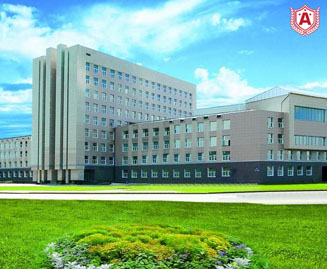
| Year of Establishment | 1993 |
| National Ranking | 27th |
| No. of Indians Students | 2100+ (Existing and Passout Students) |
| FMGE Passing Percentage | 26% |
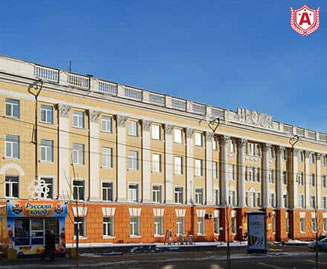
| Year of Establishment | 1954 |
| National Ranking | 28th |
| No. of Indians Students | 3000+ (Existing and Passout Students) |
| FMGE Passing Percentage | 29% |
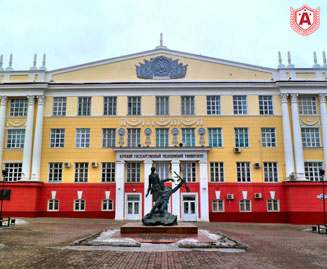
| Year of Establishment | 1935 |
| National Ranking | 29th |
| No. of Indians Students | 2100+ (Existing and Passout Students) |
| FMGE Passing Percentage | 25% |
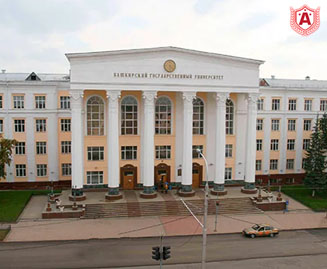
| Year of Establishment | 1932 |
| National Ranking | 30th |
| No. of Indians Students | 2000+ (Existing and Passout Students) |
| FMGE Passing Percentage | 20% |
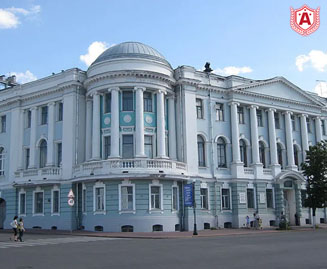
| Year of Establishment | 1920 |
| National Ranking | 31th |
| No. of Indians Students | 2200+ (Existing and Passout Students) |
| FMGE Passing Percentage | 26% |
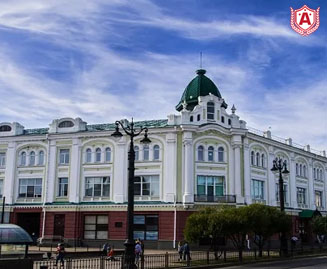
| Year of Establishment | 1920 |
| National Ranking | 32th |
| No. of Indians Students | 2300+ (Existing and Passout Students) |
| FMGE Passing Percentage | 22% |
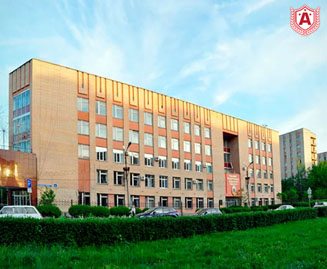
| Year of Establishment | 1950 |
| National Ranking | 33th |
| No. of Indians Students | 2600+ (Existing and Passout Students) |
| FMGE Passing Percentage | 29% |
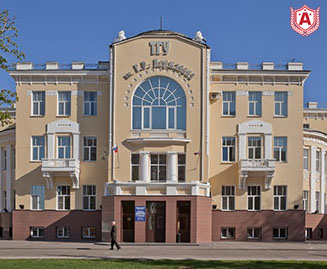
| Year of Establishment | 1994 |
| National Ranking | 34th |
| No. of Indians Students | 2200+ (Existing and Passout Students) |
| FMGE Passing Percentage | 21% |
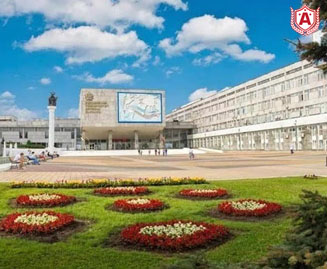
| Year of Establishment | 1960 |
| National Ranking | 35th |
| No. of Indians Students | 2400+ (Existing and Passout Students) |
| FMGE Passing Percentage | 30% |
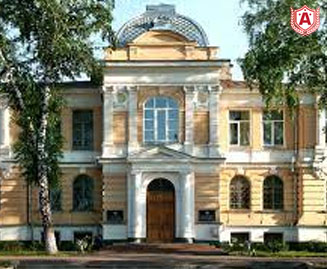
| Year of Establishment | 1978 |
| National Ranking | 36th |
| No. of Indians Students | 3200+ (Existing and Passout Students) |
| FMGE Passing Percentage | 21% |
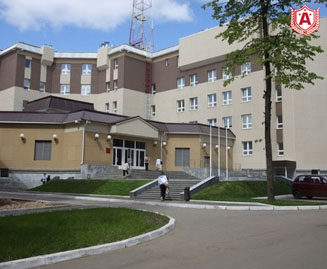
| Year of Establishment | 1933 |
| National Ranking | 37th |
| No. of Indians Students | 3400+ (Existing and Passout Students) |
| FMGE Passing Percentage | 29% |
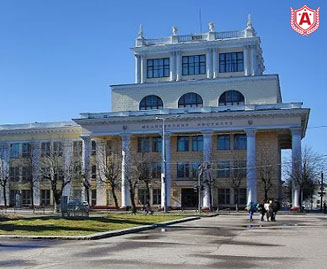
| Year of Establishment | 1930 |
| National Ranking | 38th |
| No. of Indians Students | 3100+ (Existing and Passout Students) |
| FMGE Passing Percentage | 25% |
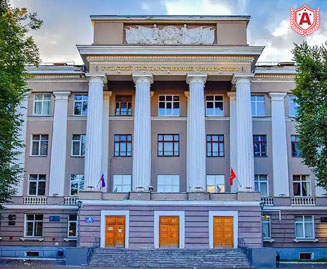
| Year of Establishment | 1930 |
| National Ranking | 39th |
| No. of Indians Students | 1900+ (Existing and Passout Students) |
| FMGE Passing Percentage | 21% |
The tuition fees at Russian universities are quite reasonable and less expensive. The studying cost in Russia is very affordable for the students. The details of the fees are:
| Medical Universities | Fees / Year |
|---|---|
| Kazan State Medical University | 4,16,000 RUB |
| Mari State University | 4,10,800 RUB |
| Northern State Medical University | 4,51,880 RUB |
| Orenburg State Medical University | 4,51,060 RUB |
| Belgorod State University | 4,02,340 RUB |
| Voronezh State Medical University | 3,20,000 RUB |
| Petrozavodsk State University | 2,40,000 RUB |
| Crimea Federal Medical University | 3,00,000 RUB |
| Orel State University | 7,20,000 RUB |
| Kazan Federal University | 4,55,000 RUB |
| Perm State Medical University | 4,10,800 RUB |
| Volgograd State Medical University | 4,55,000 RUB |
| Kabardino Balkarian State University | 2,20,000 RUB |
| Altai State Medical University | 3,23,000 RUB |
| Kursk State Medical University | 4,50,203 RUB |
| Bashkir State Medical University | 2,94,000 RUB |
| Ulyanovsk State University | 2,81,000 RUB |
| Far Eastern Federal University | 3,52,643 RUB |
| Kuban State Medical University | 2,40,000 RUB |
Students who want to study at Russian universities must submit a list of documents to the university, allowing them to be admitted to the medicine program in Russia. The details of these documents are:
Application form of the University.
12th-degree certificate
Minimum marks of 50% in the 12th with the subjects physics, chemistry, and biology.
NEET Certificate
They also have to submit a cover letter properly written in English.
International Students must provide a valid copy of their Visa and Passport.
Six Recently Taken Coloured Pictures have to be Submitted in Passport Size.
If you want to take the medicine program from any university in Russia, then you have to fulfill the required eligibility criteria. The list of eligibility requirements is:
The student must be 17 years old within 31st December of the admission year, making the person eligible to take the medicine program from a Russian University.
The students must complete that 12th-grade education and have a minimum score of 50%, including chemistry, physics, and biology.
International students must clear an entrance examination to be eligible to take the course from any university in Russia.
The Indian students must pass the NEET exam to apply for a medicine program from the universities of Russia.
For admission to study medicine at the University of Russia, there is a particular admission procedure the students have to follow. The admission procedure details include:
Connect with Us: Should you seek assistance to secure a spot in a Russian university's medicine program, our squad at Anigdha is here for you. With several members ready to steer you through the entire procedure, we can help you land a spot in medicine at the University of your Choice.
Choose the University: After you have decided that you will study your medicine program in Russia, you must select a suitable university to complete the course and the eligibility requirements of the Universities and compare it with your abilities. We will help you in this process to select the best university providing the course.
Documents: Your documents are a very important part of the admission procedure. Submit all the required documents that make you eligible for selection to the university. We will effectively assist you in this scenario.
Apply: After selecting your university, you must complete the application process and submit the application form and fee. Our team will provide you with proper guidance in this process.
Other Process: If there are other processes that the university wants you to follow, then complete them. Contact us if you require any additional help regarding other university requirements.
Visa: International students applying for the medicine program from Russia must have a proper Visa. We will assist you in making the visa arrangements.
The duration of taking a medicine course from any university in Russia will be six years. The students must complete that theoretical program within the first five years and finish taking exams and semesters. The extra year for the students is a one-year internship focusing on the course that will help them prepare for their future medical careers.
Most of the courses in medicine are in English, as it is the globally recognized language. It is the best option for international students to take their program in the English language. You need to have proper English language skills to take your medicine course in Russia effectively. The students willing to take the medicine program in the English language might have to take an interview.
The MBBS admission program in Russia starts on the first of May every year and continues till the 30th of August every year. All the students must submit their application by the 30th of August, and it is for both International and National Students to apply for the course within that duration. The Russian University only has one intake each year, and all the students have to apply within this process and follow all the requirements stated by the particular University they are applying for.
The MBBS Degree provided by the Russian University is recognized by famous institutions such as WHO, UNESCO, and NMC. These famous institutions allow students to have various career opportunities after completing the medicine program in Russia. The best option for the students is to start a clinical practice program or to start teaching or researching. The most common career opportunities the students will get after they complete the MBBS program in Russia are:
Research Work or Centre
Medical Practitioner
Teacher
Professor
Medical Specialist
They will get job opportunities not only in Russia but also across the entire world for the value of the degree.
All the famous Russian Universities are known to provide accommodation facilities to the students to minimize living expenses and make it affordable for students to live and study in Russia. The details are:
Hostel: It is the cheapest form of living facility provided by the university at an affordable cost.
Mess: If your university doesn’t have hostel facilities then you can choose a local mess facility in Russia.
PG: You will get the opportunity to live in a PG in Russia that might be expensive but the best quality living facility.
The living expenses in Russia are very low, so students select Russian universities for their higher education. The details of the cost of living in Russia are:
| Accommodation (Hostel) | USD 300 to USD 1200 |
| Groceries and Food | USD 500 to USD 1000 (Might be included with Hostel Fees) |
| Transportation Costs | USD 100 to USD 150 |
| Bills | USD 500 to USD 800 |
| Miscellaneous Expenses | USD 500 to USD 1000 |
You must consider these essential aspects while studying and living comfortably in Russia.
The Indian medical education system is slightly different from the Russian medical education system here’s how:
| Category | Medicine in Russia | Medicine in India |
|---|---|---|
| Structure | Usually 6 years, but the course is similar to India. | The duration of medical degree is 5.5 years. |
| Recognized By | WHO, NMC, UNESCO, Ministry of education and sciences | WHO, Ministry of Health in India |
| Cost | Affordable compared to India. | Affordable in Government colleges, but extremely expensive in private colleges. |
| Entrance Test | NEET exam is required for Indian students to study medicine in Russia | NEET is mandatory for Indian medical courses. |
| Exposure | Vast exposure on the international front allows students to learn about different cultures. | Good exposure, but limited opportunity due to high competition. |
| Further Studies | Students can study in Russia or the UK for higher education. | Students can move abroad for MD or postgraduate courses. |
The new NMC Gazette has few set criteria that students have to fulfil if they want to study medicine abroad and later practice in India. Undersing Gazette before you start planning your study in Russia will help you. Here’ what Gazette say:
Students must complete a minimum of 54 months of medical study.
Students must fulfil 12 months of internship with the same foreign institute.
Students must have studied subjects in schedule 1 of the gazette.
Students must apply for a practice licence and complete a 12 months internship in India.
|
NMC Gazette Criteria |
Medicine in Russia |
|
Minimum 54 months course |
72 months or 6 years course |
|
Minimum 12 months of practice |
1-year internship |
|
Internship with the same institute |
International students are eligible for internship training programs. |
Students studying in Russia for MBBS programs will have these cynical training options and criteria:
After completing your five-year theoretical course, you will get an internship or clerkship training program where you will get the opportunity to do a one-year internship at top hospitals in Russia.
The opportunities you get after clinical training will be very high and help you have better careers.
The syllabus for the medicine courses in Russia are:
1st Year: Physics, Biology, Nursing (surgery or therapy), Anatomy, Latin, Chemistry, Public Health, History, Economics, Histology, Philosophy, Russian language, Physical Training, Culturology, Basic of Research and Mathematics.
2nd Year: Physiology, Biochemistry, Hygiene, Psychology, Medical law, Bioethics, Immunology, Russian language.
3rd Year: Pharmacology, Microbiology, Pathology, Internal medicine, Topographical anatomy, Radiology, and Operative surgery.
4th Year: Dermatology, Surgery, Venereology, Obstetrics, Neurology, Gynaecology, Therapy, Urology, Public Health, Medical Rehabilitation, Public Health, Pediatrics, Phthisiology, and Endocrinology.
5th Year: Surgical Gynaecology, Psychiatry, ENT, Traumatology, Ophthalmology, Orthopedics, Physiotherapy, Outpatient Therapy, Gene therapy, and Infectious diseases.
6th Year: Oncology, Occupational diseases, radiation therapy, Anesthesiology, Intensive care training, Clinical Immunology, Dentistry, General Medical Practice, Neurosurgery, Forensic Medicine, and Epidemiology.
Here are the disadvantages of medical courses in Russia:
Language Barrier: The courses are perfect, but if you live in Russia, you might have a language barrier as all Russian citizens might not understand the English language.
Climate: The climate of Russia might also not be suitable for all international students as Russia is usually cold.
Lack of Socialisation: You will lack family support if you have to stay alone in an international country.
Challenges during job search: You will also have a lot of problems and challenges in getting job opportunities if the performance that you have made is not perfect.
Here’s unique data you can check to know about Russia’s medical education:
| Total Students | 18,039 |
| High-ranked university by Indian students | Altai State Medical University (ASU) |
| No. of Students in Medical/Technical Universities | 4,500 |
| Highest number of Indians in City | Moscow |
Foreign Medical Graduate Examination(FMGE) is a screening test conducted by the national board of examination in India for students who completed their medical education (MBBS) abroad and want to start clinical practice in India. FMCG for Russia is 16.7% on average for students.
What are the Primary Benefits of Studying Medicine in Russia?
The medicine courses in Russia are very affordable, and the living expenses in Russia are also very low. It will be very easy for the students to take and complete the course, making it a beneficial option for them.
What are the Average Living Expenses to Study in Russia?
The average cost of living in Russia will range from USD 1900 to USD 4200. The universities of Russia provide hostel facilities to the students, which reduces the cost of living in a great way.
What is the Language of Instruction for Medicine Courses in Russia?
The most used language of instruction for the medicine programs in Russia is the English language. The students can extend that duration for up to 1 year to take the course in the Russian language as it involves the Russian preparatory course for one year.
What are the Fees to Study Medicine at Russian Universities?
The range of fees the students pay to study medicine programs at Russian universities is from USD 3800 to USD 6900. The tuition fee to study the courses is very low, and it becomes very effective for the students to take the program.
What is the Duration to Study Medicine in Russia?
The general medicine program and the sports medicine program in Russia for the English language are six years, and the Russian language is seven years. The dental medicine program in English is five years, while in Russian, it is six years.
Is a Proficiency Test Necessary to Study Medicine in Russia?
The students taking the medicine program in English language need to have the English language proficiency test. The students taking the program in the Russian language must provide a proficiency test as they have to take a one-year preparatory course in Russian.
Get free 1-on-1 counselling with our experts